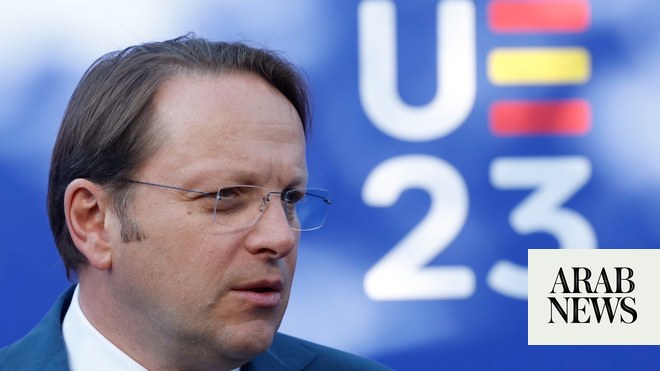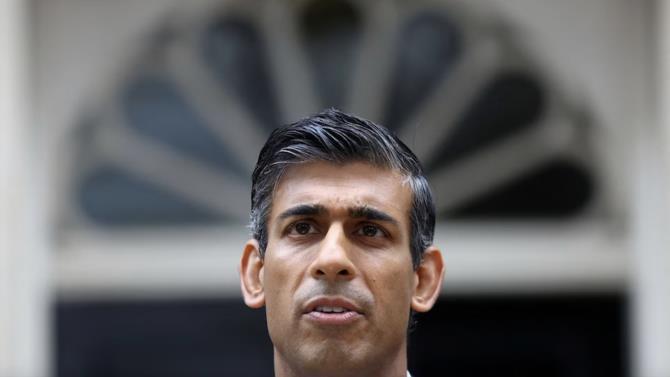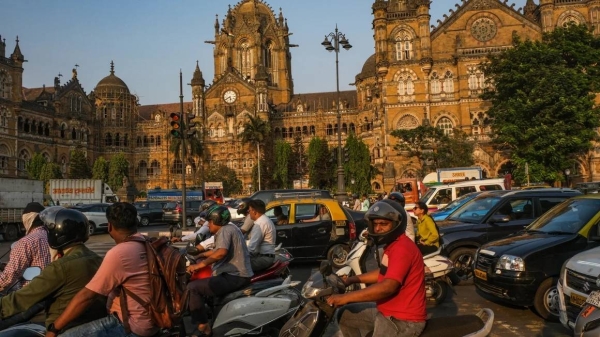
The historic visit marks the first official visit by an EU representative to Turkiye since the May presidential elections
The EU is poised to unveil its forthcoming progress report on Turkiye and a fresh enlargement report in October
ANKARA: A crucial rendezvous is set to unfold in Ankara on Sept. 6-7, with European Commissioner for Neighbourhood and Enlargement Oliver Verhelyi making his way to the Turkish capital to engage in discussions spanning bilateral relations and potential avenues for cooperation.
The historic visit marks the first official visit by an EU representative to Turkiye since the May presidential elections.
Varhelyi’s itinerary includes meetings with prominent Turkish officials, including Minister of Foreign Affairs Hakan Fidan; Minister of Trade Omer Bolat; Minister of Family and Social Services Mahinur Ozdemir Goktas; Minister of Energy and Natural Resources Alparslan Bayraktar; and Minister of Industry and Technology Mehmet Fatih Kacir.
The EU is poised to unveil its forthcoming progress report on Turkiye and a fresh enlargement report in October.
On Sept. 1, the European Commission officially inked an association agreement with Turkiye, granting access to the €7.5 billion ($8 billion) Digital Europe Programme slated for the period spanning 2021-2027. Once the agreement is ratified, Turkish enterprises, public administrations and eligible organizations will be empowered to take part in digital technology projects. Turkiye is also expected to establish Digital Innovation Hubs across the nation as part of the scheme.
In the wake of the devastating earthquakes in the country this February, the European Commission proposed a financial lifeline of €400 million from the European Union Solidarity Fund to provide much-needed assistance.
Furthermore, during his visit, Varhelyi is set to finalize a €781 million contract, allocating EU funds to support refugees in Turkiye, thereby fulfilling a prior commitment of €3 billion in funding to continue aiding refugees in the country.
Cigdem Nas, a prominent expert on EU-Turkiye relations and secretary-general of the Istanbul-based Economic Development Foundation of Turkiye, said a critical stage in Turkiye-EU relations has already come.
“Despite being a candidate, Turkiye is no longer considered as a country with membership perspective. Turkiye was not invited to the recent summit with candidate countries in Athens. The European Council has tasked the commission and high representative to write a report on the future of the relations. Mr. Sanchez Amor, the European Parliament rapporteur for Turkiye, also recommended a new kind of relationship replacing the accession process,” she told Arab News.
While Turkish President Recep Tayyip Erdogan has recently called for a revival of the accession process, Nas thinks that such a move appears increasingly challenging.
“In a paradoxical twist, while Ukraine’s candidacy has generated an unprecedented enlargement perspective toward the Eurasia region, it has also made Turkiye’s membership prospects more improbable due to the EU’s limited integration capacity,” she said.
On July 10, Erdogan unexpectedly called for a reopening of Turkiye’s accession talks, linking it with Turkiye’s greenlight to Sweden’s stalled bid to join NATO.
However, experts have said that the Turkish government’s decades-long backsliding in domestic reforms, especially in rule of law, press freedom and democracy, compounds the complexity of the accession process.
Accession talks have stalled since 2016 over the EU’s concerns about human rights violations and respect for rule of law in the country.
“Given Turkiye’s strategic importance to the EU, its growing geopolitical significance in light of the conflict in Ukraine and Russian aggression, the enhanced cooperation is preferred and it encouraged rapprochement in areas such as security, energy, migration and supply chains,” Nas said.
However, analysts agree that the renewed rapprochement between the EU and Turkiye is unlikely to result in full membership for Ankara, but will instead herald a new form of partnership.
“Given that Turkiye already enjoys associate status with the EU under the Ankara Agreement, which commemorates its 60th anniversary this year, any fresh model for these relations must be rooted in the existing legal framework and must integrate current policy priorities, such as the green and digital agendas,” Nas affirmed.
Nonetheless, political roadblocks and disputes, such as the Cyprus issue, could yet present formidable obstacles to the future of relations.
“In such a scenario, a transactional and issue-based, sporadic relationship may materialize instead of a comprehensive, neatly packaged arrangement,” Nas said.
Meanwhile, Turkiye’s geopolitical influence has experienced a notable surge, especially following its role as a middleman in persuading Russia to re-enter the grain deal.
Samuel Doveri Vesterbye, managing director of the European Neighborhood Council in Brussels, said that this week’s visit to Turkiye by Varhelyi is “very important” because it comes at the same time as the EP and EU’s Foreign Ministry report about EU-Turkiye relations is handed to the European Council.
“We expect this report to be submitted between Sept. 17 and 25, and it is likely to include views about a new strategic partnership with Turkiye,” he told Arab News.
Vesterbye added that the numerous visits by high-level commissioners to Turkiye is a strong sign that negotiations have started.
Dialogue about a future EU-Turkiye relationship based on institutional ties, economic interdependence, trade, investment, migration, security, connectivity, digital policies, energy, visa liberalization, disaster management and reforms are high on the agenda, he added.
“There are still many challenges, including the Cyprus question and how a renewed customs union is possible without settling the age-old question of trade to and from the island, as well as issues linked to uncompetitive, illegal state-funding practices by the Turkish government and questions regarding labor laws, media and juridical independence,” he said.
But, for Vesterbye, an essential component is Turkiye’s capability to uphold environmental and labor standards.
This will allow EU companies to continue operating in Turkiye, and provide a legally risk-free environment for existing and new EU-Turkish supply chains in the country, as well as encourage the creation of new trade routes though Turkiye and into the Caucasus and Central Asia.
“For the EU to pursue a deeper strategic relationship with Turkiye, there also has to be genuine and verifiable proof of goodwill from the Turkish side on these topics,” he said.
However, experts remain cautious about the next phase of rapprochement.
“Forced migration and conflict across Eurasia is a serious problem for both the EU and Turkiye, and the only way to solve this is by increasing EU-Turkiye cooperation in security sectors in the future. Between 2007 and 2022, the EU and Turkiye have de-aligned in common foreign and security policy from 97 percent alignment to only 7 percent.
“This poses a huge risk for both the EU and Turkiye, since both are tied together in terms of energy, trade and supply chains among many other areas, like migration and environmental policies,” said Vesterbye.
He added that the new EU report on Turkiye could help launch more dialogue and negotiations in order to find better ways to cement a new post-accession partnership based on a common strategic vision.
“The alternative could be devastating, since economic decoupling between the EU and Turkiye will have detrimental effects on both economies and security,” Vesterbye said.
A day before Varhelyi’s visit, Turkish Foreign Minister Hakan Fidan met his Greek counterpart, George Gerapetritis, marking the latter’s inaugural ministerial visit to Turkiye.
“We are now in a new and positive stage in our relations with our neighbor and ally, Greece. Revitalization of high-level contacts and dialogue channels are positive developments. Today, we confirmed our mutual will to sustain this momentum,” Fidan said on X (formerly Twitter).
During their meeting, discussions spanned cooperation in areas including trade, the economy and tourism, as well as strategies to combat illegal migration and terrorism.
“We believe we can overcome our differences with the spirit of good neighborliness and through constructive dialogue,” Fidan said.
Vesterbye said that the meeting between Fidan and his Greek counterpart demonstrates “real interest” between the two countries in easing tensions.
He added: “About the grain deal — it is clear that Turkiye is playing its hand well. It has an important role in Africa, and Russia is now directly blamed for impeding access to food on the continent for millions of people. The EU and Turkiye have a real role to play in Africa since the continent’s well-being and growth equals better security, safety and trade for the EU.”












